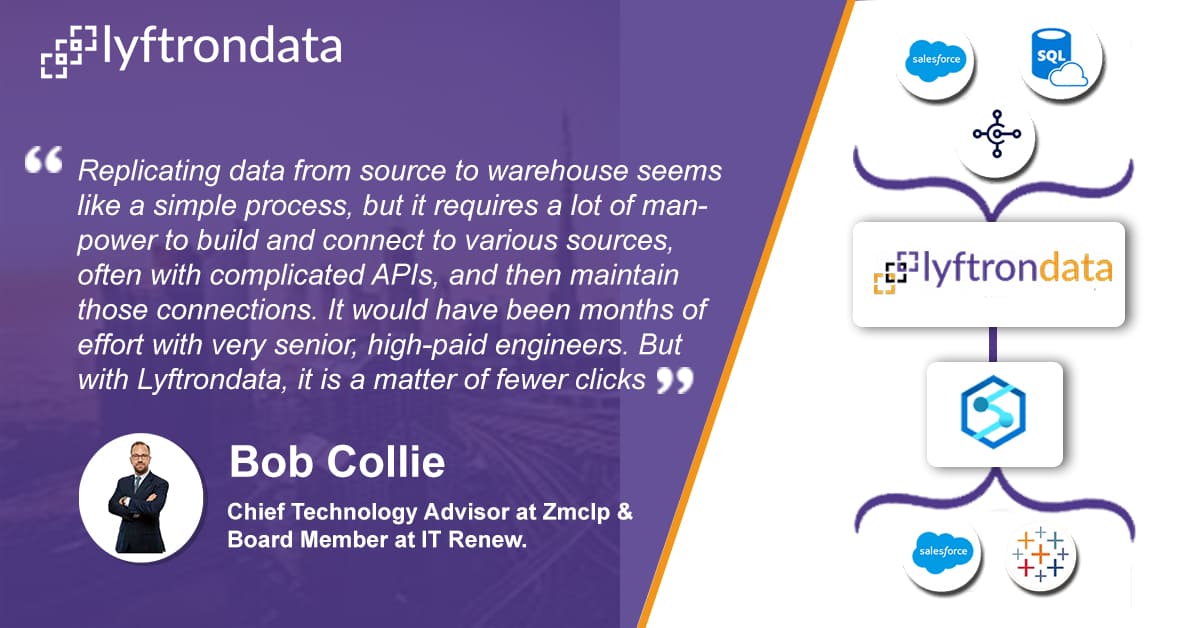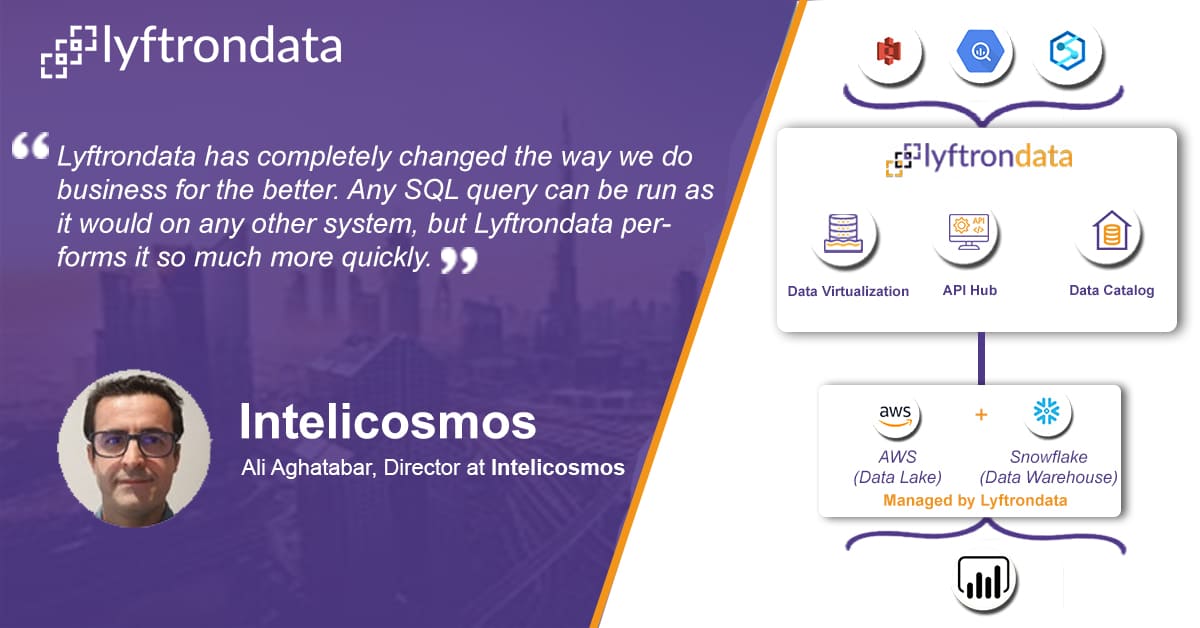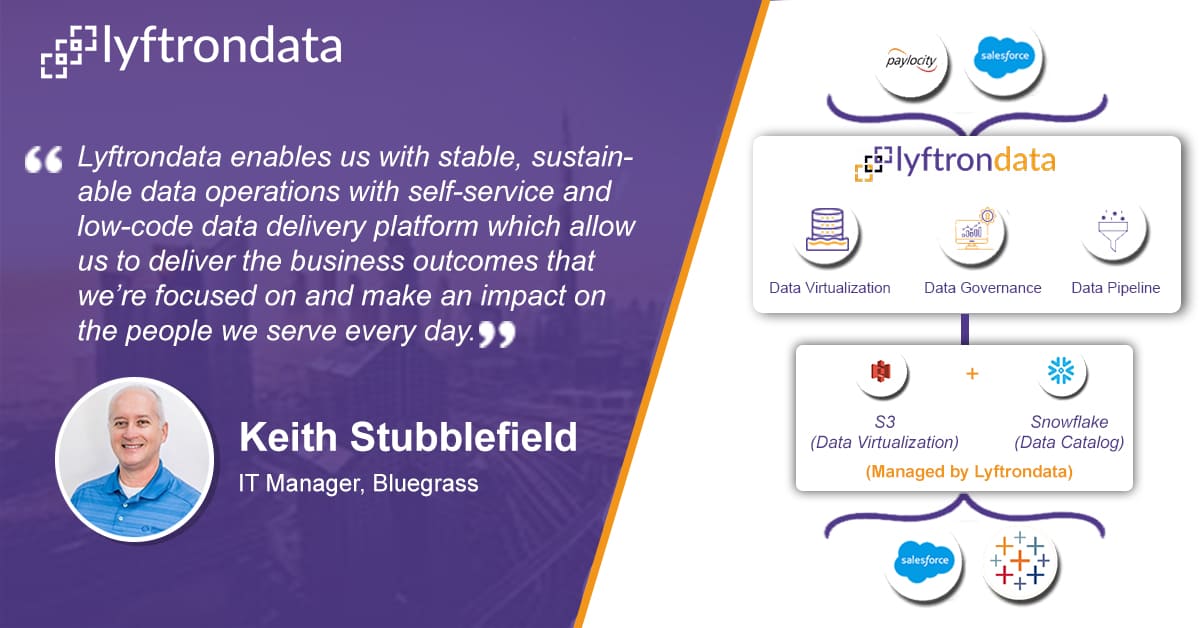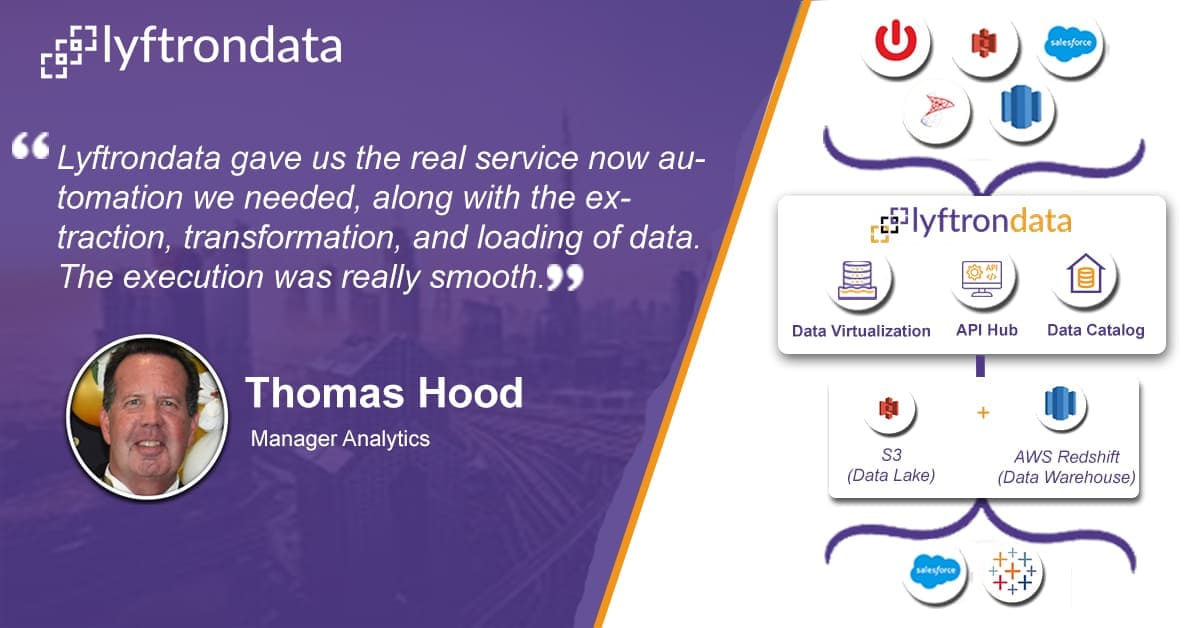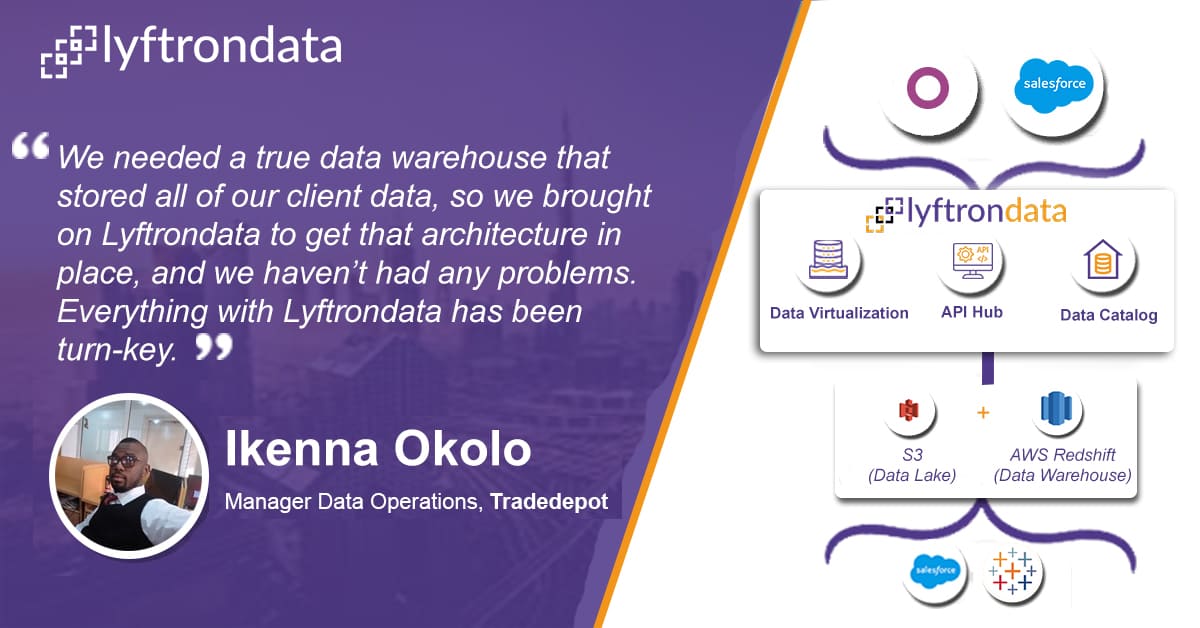200X Acceleration at
1/10th of the cost
Zero
maintenance
No credit card
required
Zero coding
infrastructure
Multi-level
security
Simplify Impala integration in
4 simple steps
Create connections
between Impala and targets.
Prepare pipeline
between Impala and targets by selecting tables in bulk.
Create a workflow
and schedule it to kickstart the migration.
Share your data
with third-party platforms over API Hub

Why choose Lyftrondata for Impala Integration?
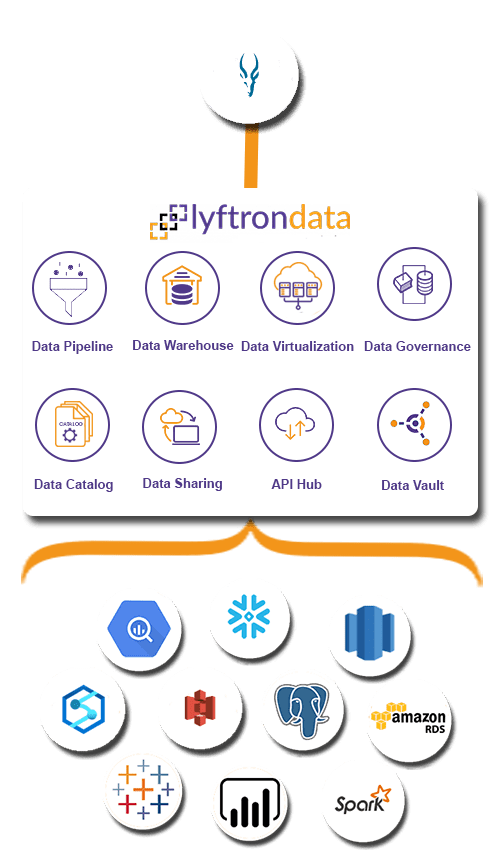

Simplicity
Build your Impala pipeline and experience unparalleled data performance with zero training.

Robust Security
Load your Impala data to targets with end-to-end encryption and security.

Accelerated ROI
Rely on the cost-effective environment to ensure your drive maximum ROI.

Customer's Metrics
Track the engagement of your customers across different channels like email, website, chat, and more.

Improved Productivity
Measure the performance of your team and highlight areas of improvement.

360-degree Customer View
Join different data touch points and deliver personalized customer experience.
Hassle-free Impala integration to the platforms of your choice
Migrate your Impala data to the leading cloud data warehouses, BI tools, databases or Machine Learning platforms without writing any code.
Hear how Lyftrondata helped accelerate the data journey of our customers
FAQs
What is Impala?
The Apache Impala Integration massively parallel SQL query engine is free software that can be used to store data on a computer cluster running Apache Hadoop. Impala was created in 2012 and has been compared to Google F1, the open-source version of which Impala was modeled after.
What are the features of Impala?
Open Source: Apache Impala Integration accelerates open source integration.
In-memory Processing: Apache Impala ETL stimulates In-memory processing.
Easy Data Access: Apache Impala Connectors tool enables you to easily access the database.
Faster Access: Apache Impala Driver's tool offer faster accessibility.
What are the shortcomings of Impala?
Serialization and Deserialization issues: Apache Impala Driver's tool does not support both serialization and deserialization.
Do not read binary files: Apache Impala Connectors tool can only read a text file. It does not support reading binary files defined.
New records/files constant: Apache Impala Integration software should update the table whenever new records/files are added to the data directory of HDFS.
Make smarter decisions and grow your sales with Lyftrondata Impala integration





